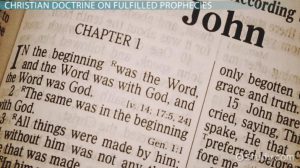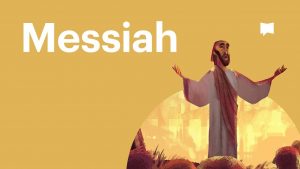
Shownotes
Wisdom-Trek / Creating a Legacy
Welcome to Day 1346 of our Wisdom-Trek, and thank you for joining me.
I am Guthrie Chamberlain, Your Guide to Wisdom
Mastering the Bible – Messianic Prophecy – Worldview Wednesday
Wisdom - the final frontier to true knowledge. Welcome to Wisdom-Trek! Where our mission is to create a legacy of wisdom, to seek out discernment and insights, to boldly grow where few have chosen to grow before. Hello, my friend, I am Guthrie Chamberlain, your captain on our journey to increase Wisdom and Create a Living Legacy. Thank you for joining us today as we explore wisdom on our 2nd millennium of podcasts. Today is Day 1346 of our Trek, and it is Worldview Wednesday. Creating a Biblical Worldview is essential to have a proper perspective on today’s current events. To establish a Biblical Worldview, you must have a proper understanding of God and His Word. Our focus for the next several months on Worldview Wednesday is Mastering the Bible, through a series of brief insights. These insights are extracted from a book of the same title from one of today’s most prominent Hebrew Scholars, Dr. Micheal S. Heiser. This book is a collection of insights designed to help you understand the Bible better. When we let the Bible be what it is, we can understand it as the original readers did, and as its writers intended. Each week we will explore two insights.
Mastering The Bible – Messianic Prophecy
Insight Forty-Seven: The “Servant” of Isaiah Is Both an Individual and the Collective Nation of Israel
We immediately think of the Messiah at the mention of the servant in the book of Isaiah. This is natural, since the one whom the prophet said would be led like a lamb to the slaughter (Isaiah 53:7) and have our sins placed upon him (Isaiah 53:6) is called God’s servant twice (Isaiah 52:13; 53:11). But the servant of Isaiah is often not an individual messianic figure. In several passages, Israel is that servant.
For example, in Isaiah 41:8 God speaks, “But as for you, Israel, my servant, Jacob my chosen one, descended from Abraham my friend” But in the very next chapter, God sends a servant to the nation of Israel (Isaiah 42:1, 18-25). Then the prophet moves back to the corporate servant of Israel in the chapters that immediately follow:
“But now, listen to me, Jacob, my servant, Israel, my chosen one.
The Lord who made you and helps you says: Do not be afraid, O Jacob, my servant, O dear Israel, my chosen one.
Pay attention, O Jacob, for you are my servant, O Israel. I, the Lord, made you, and I will not forget you.
“And why have I called you for this work? Why did I call you by name when you did not know me? It is for the sake of Jacob, my servant, Israel, my chosen one.
He said to me, “You are my servant, Israel, and you will bring me glory.”
Oddly enough, the final reference sets up a transition back to the individual servant whom God sends to Israel in Isaiah 49:5
And now the Lord speaks, the one who formed me in my mother’s womb to be his servant, who commissioned me to bring Israel back to him. The Lord has honored me, and my God has given me strength.
Why the back-and-forth? Can’t Isaiah make up his mind? There is a good reason both portraits are in Isaiah. Throughout the Old Testament, the nation was represented by a single individual and by language describing a single figure. Israel is called God’s son (Exodus. 4:22-23). Later, the king of Israel will be called God’s son (Psalm 2:7). King David was called God’s servant (Psalm 89:3, 20). This royal son of God was, of course, from the line of David, the line that would produce the Messiah—Jesus, God’s Son (John 3:16). The logic here is that Israel was supposed to be God’s offspring (his “son”) through Abraham. Israel was supposed to be above all nations since her king was above all kings (Psalm 89:27). Israel failed, and so God had to accomplish his plans himself. He would come as a man to fulfill the role of son, servant, Messiah, and king. The “back-and-forth” portraits show us that God knew all along he would have to fulfill his own expectations to redeem humanity.
The logic here is that Israel was supposed to be God’s offspring (his “son”) through Abraham. Israel was supposed to be above all nations since her king was above all kings (Psalm 89:27). Israel failed, and so God had to accomplish his plans himself. He would come as a man to fulfill the role of son, servant, Messiah, and king. The “back-and-forth” portraits show us that God knew all along he would have to fulfill his own expectations to redeem humanity.
Insight Forty-Eight: Messianic Prophecy Was Deliberately Cryptic
 Have you ever wondered how the disciples never seemed to understand the things Jesus told them about himself? Think about it. When Jesus told them that it was time for him to go to Jerusalem and die, it angered and scared them (Matthew 17:22-23; Mark 9:30-32). No one replied, “That’s right; I read that in the Scriptures.” Peter even rebuked Jesus for saying such a thing (Matthew 16:21-23). The truth is that the disciples had little sense of what was going on. Even after the resurrection, their minds had to be supernaturally enabled to get the message (Luke 24:44-45).
Have you ever wondered how the disciples never seemed to understand the things Jesus told them about himself? Think about it. When Jesus told them that it was time for him to go to Jerusalem and die, it angered and scared them (Matthew 17:22-23; Mark 9:30-32). No one replied, “That’s right; I read that in the Scriptures.” Peter even rebuked Jesus for saying such a thing (Matthew 16:21-23). The truth is that the disciples had little sense of what was going on. Even after the resurrection, their minds had to be supernaturally enabled to get the message (Luke 24:44-45).
We shouldn’t be too hard on the disciples. They weren’t dumb. Their ignorance was the result of God’s deliberate plan to conceal the messianic prophecy. Paul talked about the need for that in 1 Corinthians 2:7-8
No, the wisdom we speak of is the mystery of God —his plan that was previously hidden, even though he made it for our ultimate glory before the world began. But the rulers of this world have not understood it; if they had, they would not have crucified our glorious Lord.
If Satan and the powers of darkness had known that instigating people to kill the Messiah was part of God’s design to accomplish their own doom, they would never have done it. The Gospels are clear that Satan and demons knew the prophesied son of David had come (Matthew 8:28-29; Luke 4:31-35). The Old Testament was clear that would happen at some point. But what it concealed was the plan of redemption.
Let’s take Isaiah 53 as an example. It’s clear that God’s servant would suffer for sins, but the Hebrew word translated “Messiah” (Mashiach) never occurs in the passage. It occurs only once in all of Isaiah, and even then, it is used of Cyrus, a pagan king. The word does not occur in Jeremiah or Ezekiel and is only found once in the Minor Prophets (Habakuk 3:13), where it speaks of the nation. The occurrences in the Psalms refer to Israel’s king. Only a handful of them are quoted by New Testament authors of the messianic king, and their application only became apparent after Jesus’s death and resurrection. Even the label “son of God” isn’t helpful since Israel is called God’s son in Exodus 4:22-23, and kings like David got that title too.
As shocking as it sounds, there isn’t a single verse in the Old Testament that refers to a suffering Messiah (Mashiach), who would be God incarnate, die, and rise again. That is deliberate. What we do get in the Old Testament are all the pieces of that profile scattered in dozens, even hundreds of places. The portrait could only be discerned after the fact.
The plan of salvation was a cosmic chess game that had to be won. The rest of prophecy unfolds in the same way, in fulfilments hidden in plain sight.
That will conclude this week’s lesson on another two insights from Dr. Heiser’s book “Mastering The Bible.” Next Worldview Wednesday, we will continue with two additional insights. I believe you will find each Worldview Wednesday an interesting topic to consider as we build our Biblical Worldview.
Tomorrow we will continue with our 3-minute Humor nugget that will provide you with a bit of cheer, which will help you to lighten up and live a rich and satisfying life. So encourage your friends and family to join us and then come along with us tomorrow for another day of ‘Wisdom-Trek, Creating a Legacy.’ If you would like to listen to any of our past 1345 treks or read the Wisdom Journal, they are available at Wisdom-Trek.com. I encourage you to subscribe to Wisdom-Trek on your favorite podcast player so that each day’s trek will be downloaded automatically.
If you would like to listen to any of our past 1345 treks or read the Wisdom Journal, they are available at Wisdom-Trek.com. I encourage you to subscribe to Wisdom-Trek on your favorite podcast player so that each day’s trek will be downloaded automatically.
Thank you so much for allowing me to be your guide, mentor, and, most of all, your friend as I serve you in through this Wisdom-Trek podcast and journal.
As we take this Trek together, let us always:
- Live Abundantly (Fully)
- Love Unconditionally
- Listen Intentionally
- Learn Continuously
- Lend to others Generously
- Lead with Integrity
- Leave a Living Legacy Each Day
I am Guthrie Chamberlain….reminding you to ’Keep Moving Forward,’ ‘Enjoy your Journey,’ and ‘Create a Great Day…Everyday’! See you Tomorrow!